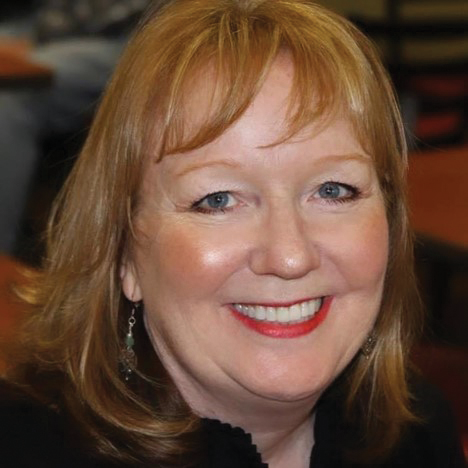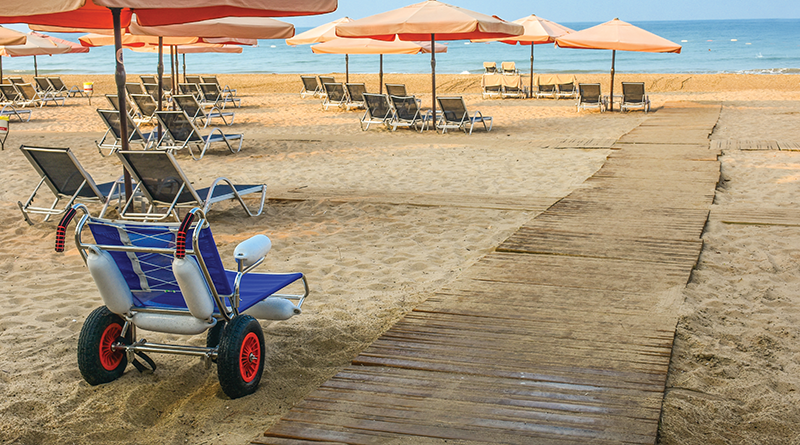Be An Enabler
Serving Travelers with Disabilities Means Going Beyond ADA Requirements
On her travel blog, Sylvia Longmire, who has visited more than 48 countries as a wheelchair user, recently documented her struggles with hotel showers. These included a lack of fold-down benches, improperly placed grab bars, and shower controls that are placed on the wrong wall or too far to reach from the shower bench. She’s not alone.
According to a new survey, Portrait of Travelers with Disabilities™: Mobility and Accessibility from MMGY Global, nearly all respondents (96%) say they have faced an accommodation problem while traveling, More than half (54%) have been given a room at check-in that did not match the room they booked, 81% have dealt with inaccessible showers or tubs, and 52% have encountered beds that were too high for them to access. The challenges for this group are very real and are found at every step of the travel-planning process and journey,
Lodging and transportation accessibility are cited as the two biggest barriers to travel for those with mobility issues, according to respondents who included 2,789 Americans with mobility disabilities and their caregivers and companions.
The ability to have access to the same experiences as travelers without disabilities should be a priority across the hospitality industry, as people with mobility disabilities spend $58.2 billion per year on travel. They go on leisure trips with nearly the same frequency as those without mobility issues, taking an average of 3.4 trips in the past 12 months and spending an average of $3,546 on leisure travel during that period.
It’s not just a small group. According to the U.S. Census Bureau’s most recent data, about 56.7 million people—one in five—has a disability, and half of adults 65 and over have a disability. “Because people with disabilities skew older, they tend to have more time to travel,” said Chelsea Bachman, a research account manager at MMGY.
Going the Extra Mile
The Americans with Disabilities Act was passed in 1990 to ensure that people with disabilities have the same rights and opportunities as everyone else. If you live in the United States and have a disability or a family member or friend with a disability, the ADA has had a profound effect on your life. From access to restaurants and public restrooms to easy entry into historic sites and tourist attractions, people with disabilities can participate in more activities, find more jobs, and travel more easily.
Related: Avoiding ADA Non-Compliance Issues in Resort Renovations
In an online seminar to discuss the study’s findings, Ian Ruder, editor of New Mobility magazine, said that while the Americans with Disabilities Act provides standards and guidelines, we can always do better. “Many of the accommodations that have been made in recent years, such as curb cuts, end up helping a wider swath of the population than initially expected,” he said. “Anyone who has pushed a stroller or rolled a suitcase has found them useful.”
He. along with Alvaro Silberstein, found and CEO of Wheel the World stressed the importance of being able to see multiple pictures of the exact room they are booking and taking virtual tours of places they plan to visit to determine if there are any obstacles that could make it difficult or impossible to move around with their mobile device. “Remember that not everyone in a wheelchair is the same,” Silberstein said. “Some will want a higher bed and others one that’s lower.”
Rolling Out the Welcome Mat

Cindy Thomas, general manager of Stoneridge Resort in Blanchard, Idaho, says her resort strives to provide appropriate accommodations for all guests. “It’s really a passion for me,” she said. A $4 million renovation in 2016 was driven by the need to add elevators to the resort and included the construction of three purpose-built ADA units. The investment has been proven valuable to Stoneridge’s owners and guests.
“Although the purpose-built ADA units are just 2% of our total units, they account for 4.7% of all bookings,” she said. “Additionally, because we typically have a reservation for every ADA unit, we often make outbound calls to accommodate people in our deeded timeshare units that are not owned by the association but individually owned. We can, if needed, book those with disabilities into those units when the owners agree to switch.” (The resort has a fixed-week, fixed-unit ownership plan.)
To facilitate the moves, Thomas asks her exchange company to assign the ADA units last, allowing for maximum flexibility.
Once a reservation has been made, the resort’s staff will reach contact the guest to determine which room best suits their needs. One of the studio rooms, for example, has two recliners instead of a hide-a-bed, which some people prefer. The kitchen has a roll-under sink that’s a bit lower than a standard sink. Another unit includes a bathtub with a transfer bench, a handheld shower, and a fixed shower. “The roll-in shower is the number one request,” she said.
The rooms were designed based on requests Thomas had heard from owners over the years as well as in consultation with an ADA specialist.
As Ruder predicted, the addition of elevators at Stoneridge Resort has proved useful to all the resort’s guests. “The elevators have helped so tremendously,” Thomas said. “People bring a lot of stuff on vacation, and the luggage carts are always full!”
The study is available at https://mmgyintel.com/north-american-services-3/studies-in-diversity-equity-inclusion-research/. To create the study, MMGY consulted with the United Spinal Association, which will receive 100% of the proceeds from the study’s sale.
Judy Kenninger, principal of Kenninger Communications, has been covering the shared-ownership real estate industry for nearly two decades.



